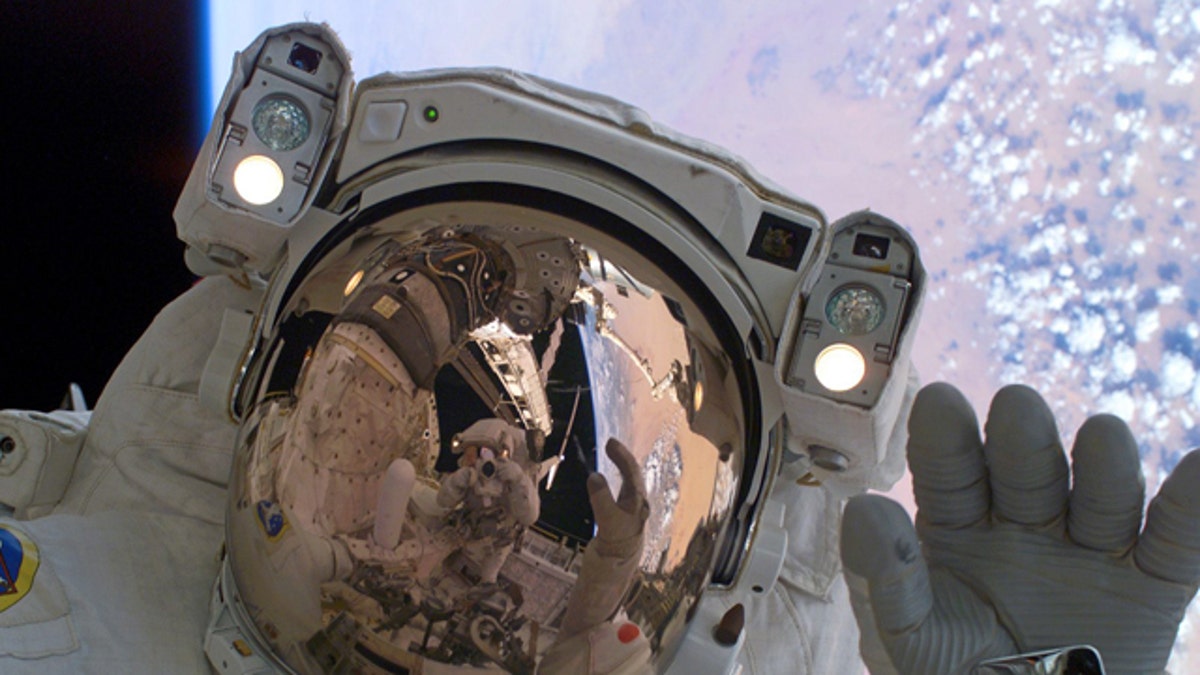
(NASA)
The United States must maintain a strong astronaut corps, even though human space flight has been temporarily stalled for NASA and many astronauts have retired or quit this year, argues a new report from the National Research Council (NRC).
Over the years, the number of astronauts employed by NASA has clearly been downgraded — from about 150 in 1999 to 61 in 2011. And after several meetings with NASA representatives, former shuttle pilots and mission specialists, and representatives from private space companies, the NRC warns that 61 astronauts may not be enough.
We need astronauts as much as ever, it argues.
“The shuttle program was only one requirement for astronauts,” Joe Rothenberg, one of the co-chairs for the report, told FoxNews.com. “The most obvious one now is to continue operating the International Space Station. We have a partnership with the Russian Federal Space Agency, the European Space Agency and the others that developed it, and we have a commitment to operate it until 2020, staffing it with qualified astronauts to do research.”
In addition to maintaining the ISS, the report listed other jobs for which astronauts are needed, including the development of the next generation of human space flight vehicles. Whether it be for NASA’s Orion Space Capsule or commercial space flight vehicles developed by private companies like SpaceX, astronauts will need to be involved in both the development and operation of these vehicles.
From the various meetings and researched conducted with NASA and other space flight agencies, the report’s committee developed a formula to determine the absolute minimum number of astronauts needed in the post shuttle era.
“The astronaut office maintains a model of the basic operational duties, number of backups needed, the number of years it takes to train them” — the typical training program takes two to two and a half years — “and the annual attrition you expect over the next five years,” Rothenberg told FoxNews.com. “That all goes into a model the committee uses, and then we basically have a sound way of projecting the size of the corps needed.”
NASA currently has 61 astronauts. The report argues that's just not enough. A NASA spokesman told FoxNews.com that the report was "helpful," but he did not address its major critique.
“The National Research Council report offers helpful advice about the appropriate size of our astronaut corps as we enter this exciting new era of space exploration and crew transport operations," said Michael Curie, a spokesman for the space agency. "It also provides guidance on the use of existing NASA facilities and other resources to train for future missions, and supports the role and definition of the astronaut corps in connection with the full utilization of the International Space Station.”
A major concern in the report revolves around the need for contingency plans. Rothenberg references the need for extra astronauts in case of unexpected developments that NASA can’t anticipate, such as the bicycle accident that prohibited astronaut Tim Kopra from flying the final flight of Discovery or the tragic shooting of Representative Gabrielle Giffords that led astronaut Mark Kelly to re-evaluate his ability to fly the shuttle.
“It’s not as easy in the last stages [of training] ... with the size of the astronaut corps as it is now,” Rothenberg told FoxNews.com. “If we want to maintain our presence in human space flight and lower earth orbit, then there’s clearly not enough astronauts currently in the plan.”
The report notes that a ground crew of astronauts, such as those who train with the T-38N Talon two-seat training aircrafts, is just as important as those who work in space. By responding to emergencies on Earth, astronauts can develop the response skills needed when working in the high-stress environment of lower Earth orbit or the surface of the moon.
Overall, Rothenberg feels that a strong astronaut corps is a necessity for NASA so as to not waste the accomplishments it has made thus far.
“We have developed what I would call a pretty rigorous training program for astronauts,” Rothenberg told FoxNews.com. “That investment and the training required for it is a valuable national asset. It cost probably in the multiple billions of dollars over the past fifty years for the want of four or five extra astronauts. People don’t want us to spend money, but they are also the same ones that don’t want us to become a third world power in terms of space flight.”
“If we throw [the astronaut corps] away now, the cost would be so prohibitive, we’d stay on the ground forever.”








































